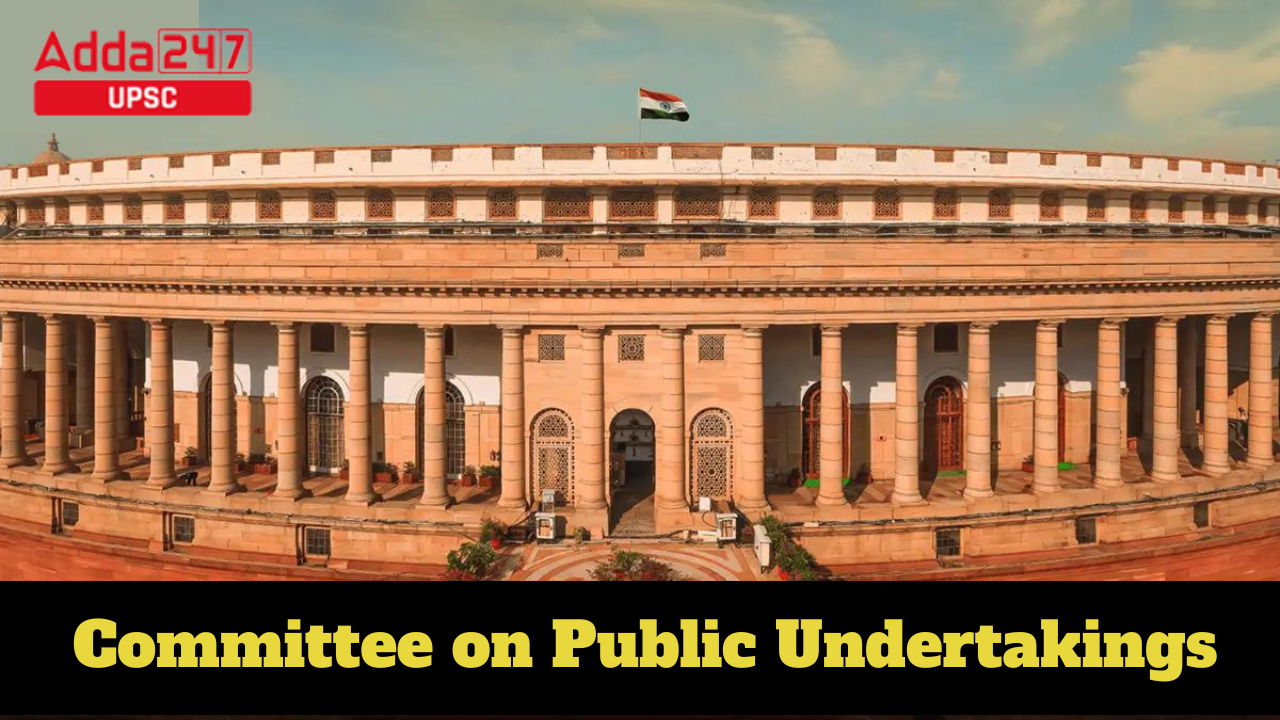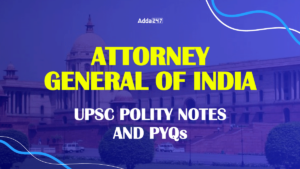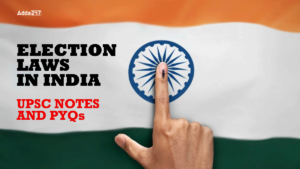Table of Contents
The Indian Parliament formed the Committee on Public Undertakings in 1964, based on the Krishna Menon Committee’s suggestion. This committee scrutinizes the reports and accounts of public sector undertakings (PSUs), as specified in the fourth Schedule of the Lok Sabha Rules of Procedure and Conduct of Business.
Committee on Public Undertakings
The Committee on Public Undertakings, proposed in 1964 following the Krishna Menon committee’s recommendations, comprises members chosen annually by Parliament from its ranks. The selection follows the principle of Proportional Representation via a Single Transferable Vote. Membership tenure is limited to one year, with Ministers ineligible for election. The Speaker designates the committee’s chairperson, typically from the Lok Sabha, thus precluding Rajya Sabha members from chairing the committee.
Scope of Committee on Public Undertakings
The Committee on Public Undertakings (COPU) stands as one of Parliament of India’s three financial standing committees. Its primary responsibility lies in overseeing the reports and accounts of public sector undertakings (PSUs), ensuring their efficient and effective management. COPU’s extensive mandate encompasses:
- Scrutinizing PSUs’ reports and accounts for compliance with legal requirements.
- Evaluating PSU performance to pinpoint areas for enhanced efficiency and productivity.
- Analyzing the economic and societal impact of PSUs on citizens’ lives.
- Proposing measures aimed at enhancing PSU performance and operational effectiveness.
Function of Committee on Public Undertakings
In the below point, you will learn about committee functions on public undertakings.
- Examination of public sector reports and financial statements.
- Review of the Comptroller and Auditor General’s reports on Public Undertakings.
- Assessment of whether public enterprises adhere to robust business principles and prudent commercial practices.
- Execution of any additional responsibilities regarding public undertakings as assigned by the Speaker, in alignment with duties of public accounts and estimates committees.
- Ensuring compliance with sound business and commercial standards in managing affairs of public sector undertakings.
- Oversight of Government Companies and Statutory Corporations falling within its jurisdiction, as specified under relevant legislation.
- Execution of functions concerning public sector undertakings delegated by the Lok Sabha Speaker.
- Evaluation of efficiency and autonomy of Public Sector Undertakings.
Excluded from the committee’s purview are the following:
- Matters related to major government policy distinct from the business or commercial functions of public undertakings.
- Day-to-day administrative matters.
- Issues for which specific statutory machinery is established under the legislation governing a particular public undertaking.
Composition of Committee on Public Undertakings
The financial committee comprises 22 members, with fifteen elected from the Lok Sabha (Lower House) and seven from the Rajya Sabha (Upper House).
Mode of Elections of Committee on Public Undertakings
Annually, members of this financial committee are selected by the Indian Parliament from its own ranks, employing the principle of Proportional Representation (PR) through a Single Transferable Vote (STV). This method guarantees equal representation for all members of the Indian Parliament.
Chairman of the Committee on Public Undertakings
The Committee on Public Undertakings (COPU) oversees the efficiency and accountability of state-owned businesses in India. The Chairman, appointed by the Lok Sabha speaker from COPU members, serves for a one-year term and leads investigations into PSU operations, ensuring autonomy and effectiveness. They review reports from financial watchdogs and promote good governance. Although the current Chairman’s identity is unavailable, COPU remains crucial for responsible management of India’s Public Sector Undertakings.
Term of Office of CoPU
The Committee on Public Undertakings (COPU) functions with a dynamic term structure, ensuring regular scrutiny of Public Sector Undertakings (PSUs) in India. Unlike permanent bodies, the COPU operates on a one-year cycle. This means all members, along with the committee itself, are reconstituted annually through fresh elections. MPs from both houses of Parliament are eligible, and the proportional representation system with single transferable votes ensures fair selection. This annual cycle allows for experienced members to be re-elected while also incorporating fresh perspectives. It prevents stagnation and keeps the COPU responsive to ever-changing issues within the PSU landscape.
Limitation of Committee on Public Undertakings
The constraints of the Committee on Public Undertakings are outlined as follows:
- It has a limited capacity to evaluate reports, typically examining no more than 10 to 12 public undertakings annually.
- Its focus is primarily on reports, resembling a post-mortem approach.
- The committee’s recommendations are advisory and not legally binding on Ministries.
- It lacks expertise in technical matters, as its members are not technical experts.



 Attorney General of India UPSC Notes (Ar...
Attorney General of India UPSC Notes (Ar...
 Election Laws in India UPSC Notes
Election Laws in India UPSC Notes
 Indian Parliamentary Forums UPSC Notes
Indian Parliamentary Forums UPSC Notes





